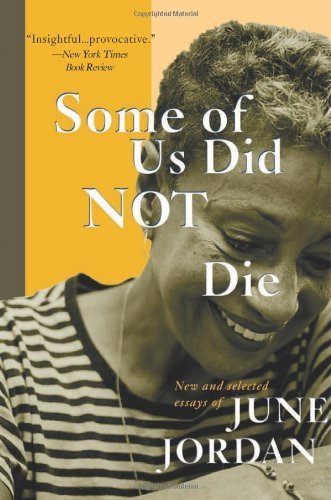What do you think?
Rate this book


Paperback
First published January 1, 2002
American delusions of individuality now disfigure our national landscape with multitudes of disconnected pained human beings who pull down the shades on prolonged and needless agony. But if we could speak the unspeakable, if we would name and say the source of our sorrow and scars, we would find a tender and a powerful company of others struggling as we do, and we would know we should show to the world, at last, that shame belongs with blame, not on the victim.
If you choose, you can consider this desperation a minority problem in America today, and then try to forget about it. But I believe this invisibility and this silence of the real and various peoples of our country is a political situation of language that every one of us must move against, because our lives depend on it.
“...even in the realm of medicine and medical research, we, women, in general, do not exist: Most tests are conducted on men for diseases affecting primarily men. Men are regarded as the universal body, the universal voice. From cholesterol to literature, you just have to hope that your female organs and/or your female perspectives do not differ importantly from those organs and viewpoints of the universal male”The anger is especially pointed surely towards medical sexism, which probably shortened June Jordan's life, prematurely ended by breast cancer. This incisive quote reminds me though, that transgender people are also left out of account in these essays, which I am inclined to notice because of June Jordan's bisexual perspective.
This would have been the poetry of someone who had chosen herself, free, and brave to be free in a land of slavery[...]The book seems to be arranged in reverse chronology, so the essays get older, and they get longer, less punchy, looser and more meandering. But their poetry and feeling diminish in no direction. The politics that animate the 1998 essay about the resegregating effects of removing affirmative action policies 'Break the Law!' which opens with a startling anecdote about a visit to a newly desegregated hotel, where because she, a Black woman, was now free to swim in the pool, White people refused to do the same, and which concludes “When the law is wrong... it is our moral obligation to break the law” goes right back to the earliest essays. She writes “freedom is indivisible”: I cannot be free while others are in chains. On holiday in the Bahamas, she is troubled by a photograph of a black waiter runing his shoes to bring drinks into the sea, she is troubled by the colonial history, the history of white people that erases the native and the slave, she is troubled by the woman who cleans her room. She never fails to particularise oppression and resistance. She is committed to touching and speaking to the realities of ordinary people, to write and distil feeling and lived experience and empathy. In love power and grace, she shares her passion and wisdom.
We will write, published or not, however we may, like Phillis Wheatly, of the terror and the hungering and the quandaries of our african lives on this North American soil. And as long as we study white literature, as long as we assimilate the English language and its implicit English values, as long as we allude and defer to gods “we neither sought nor knew”, as long as we, Black poets in America, remain the children of slavery, as long as we do not come of age and attempt, then to speak the truth of our difficult maturity in an alien place, then we will be beloved, and sheltered, and published.
But not otherwise. And yet we persist.